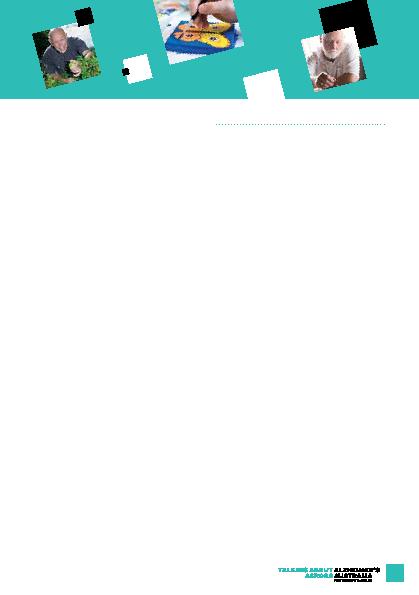
opportunity for practice transformation through
education involving emerging fundamental
philosophy and framework. This paper
proposes a framework that makes sense of
the nature of chronicity and Dementia and
argues for a set of building blocks and leverage
points that constitutes the development of an
emerging postgraduate program in Chronic and
Complex care.
just be medical, nursing, rehabilitation,
psychological, social, welfare, policy, advocacy
or financial. Chronicity and complexity is one
of the challenges that we continue to face,
and as a result, it has to be multidisciplinary. A
whole range and spectrum of services, short,
medium and long-term, individuals, groups,
communities and system wide, are required
and need to be embedded in such a program.
We need to acknowledge and recognise the
virtues and rewards of care giving and service
provision experienced by professionals and
satisfactions experienced. We should celebrate
the rewards and satisfaction experienced by
professionals and service providers. Giving
such acknowledgement and recognition would
balance comments received about the burden
of care giving. Such a philosophy is embedded
in a proposed postgraduate program in Chronic
and Complex care at the Canberra University.
The program is proposed as an exploratory
and implementation framework to prepare
multidisciplinary participants to make a
difference in their practices.
Consultancy & Development Manager, AAT
video evidence of the positive outcomes
for people living with dementia when a
rehabilitative therapies or Montessori approach
to care is implemented. Even people
living with advanced dementia are able to
participate in meaningful activities and make
contributions to their community. Through
the use of activities that promote fine motor
skills people are able to maintain the skills
they need to keep feeding themselves and
this enables people living with dementia to be
as independent as possible whilst preventing
unnecessary deterioration.
with dementia requires a complete paradigm
shift where staff need to move from a view
that only sees deficits and the dementia to one
where staff see the person and the strengths
they have. In an industry where funding is
delivered based on deficits and where attitudes
towards people living with dementia are often
entrenched this can be a major challenge.